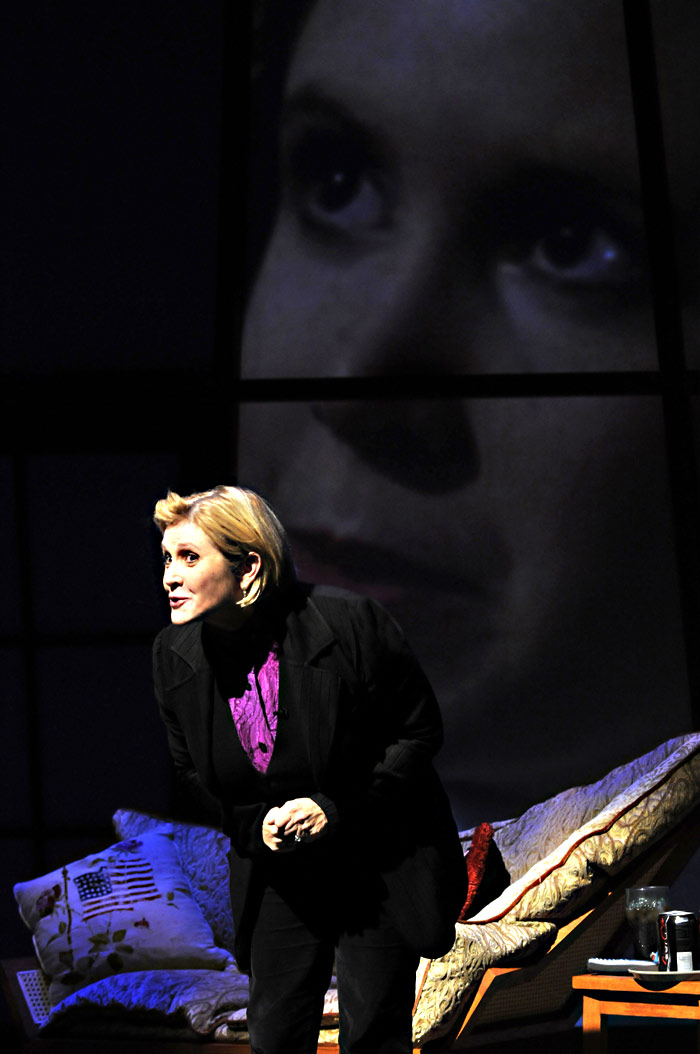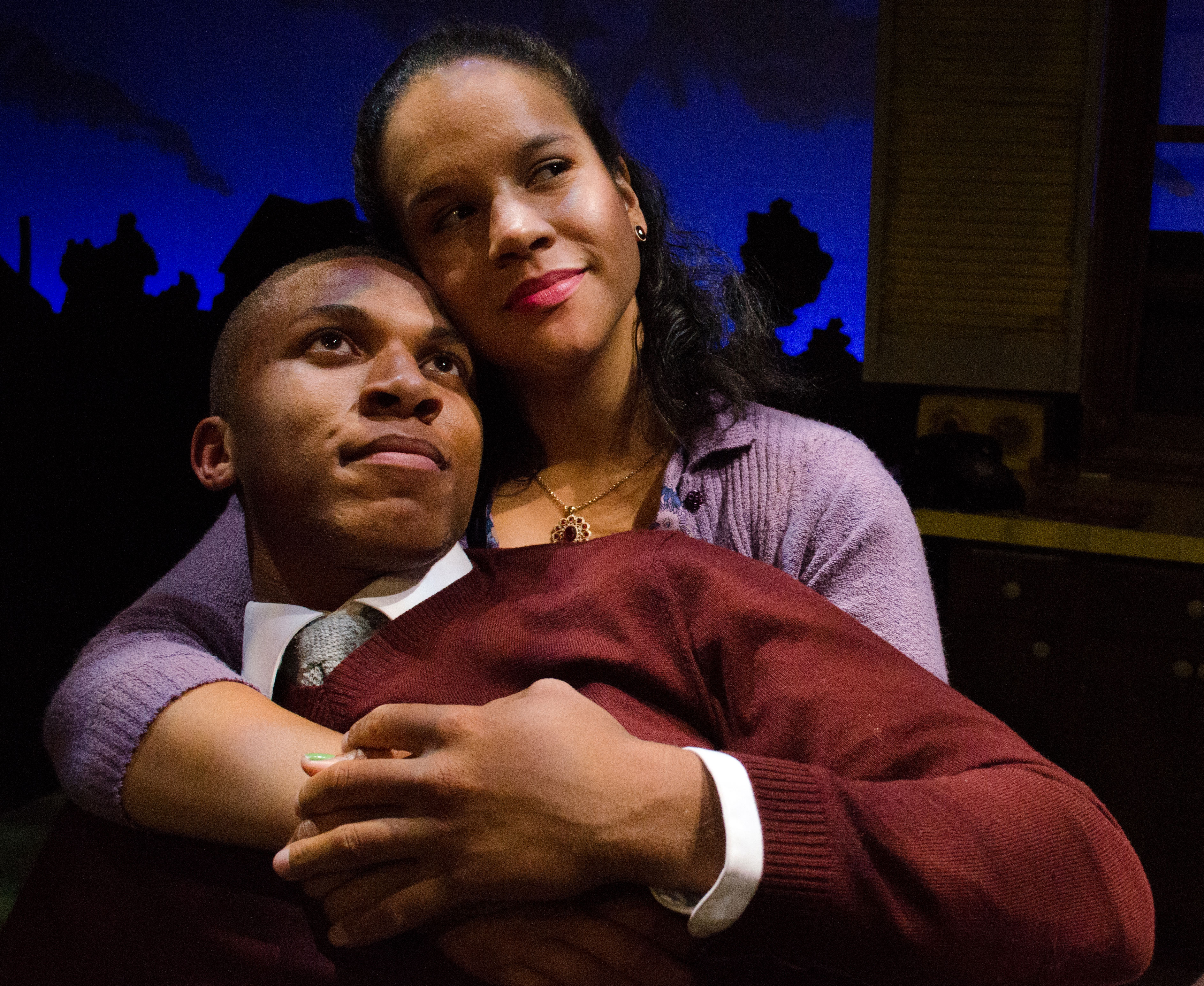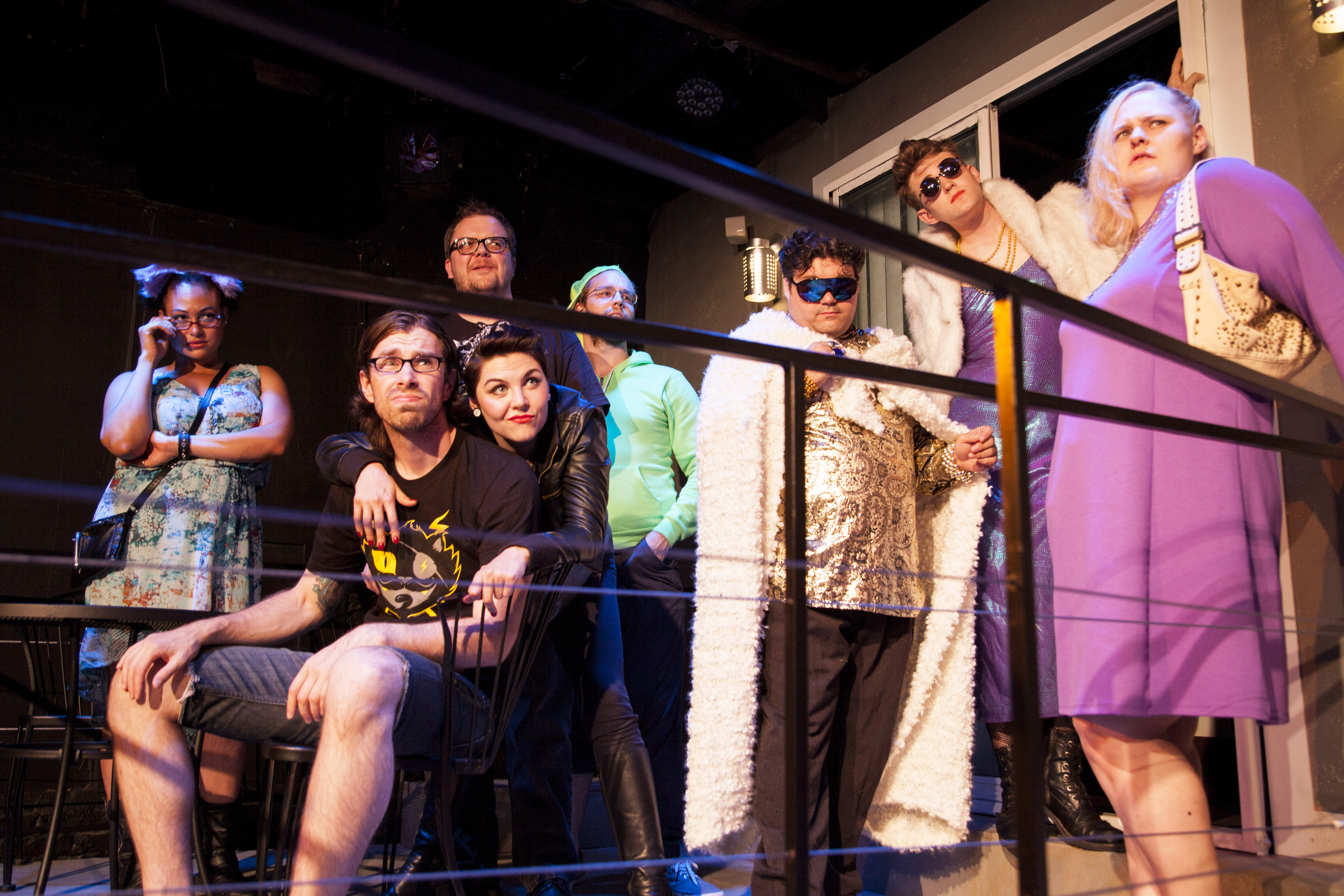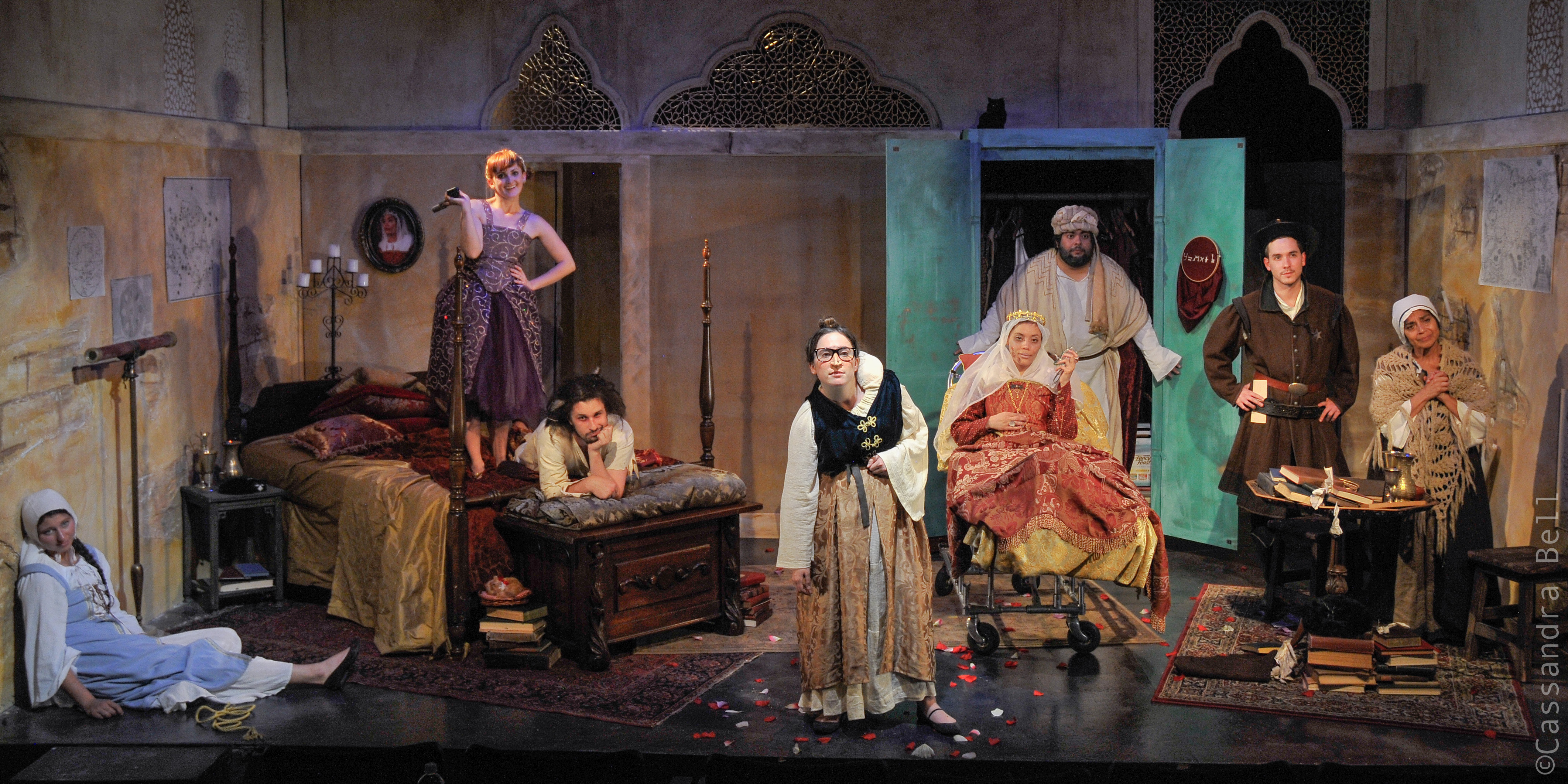Full disclosure: Seeing Carrie Fisher’s solo show did not make me gay or bald. I was gay before I attended this past weekend, and I detected not even the slightest pate-thinning following the final curtain.
Admitting her ability to confer same-sex preferences and shiny domes is only the most benign of the revelations in Wishful Drinking. This autobiography in two acts takes an unflinching look at the rewards and excesses of Fisher’s fishbowl life, and while it’s short on insight, she sure can dish the dirt. And if confession is good for the soul, Luke Skywalker’s twin sister is ready for sainthood.
What does she leave out? Certainly not the storybook marriage of her parents, crooner Eddie Fisher and the Barbie-doll beautiful Debbie Reynolds. Nor that Eddie and Debbie serve as best man and matron of honor for their pals Mike Todd and Elizabeth Taylor. Nor that when Todd perishes in a plane crash, Eddie rushes to Liz and chivalrously offers his penis as a consolation prize. Eddie marries Liz, then others. Debbie marries a succession of larcenous louts. Carrie and her brother Todd (named for Liz’s dead ex) grow up buffeted between stepfathers, klieg-light openings, and divorces played out in tabloid headlines.
Fisher is a woman of modest acting and singing talents, and she’s come to grips with that, she wants you to know. She sings briefly, and carries a tune without embarrassment or distinction. What she does radiate is a certain flinty spunk that’s equal parts regal entitlement and last line of emotional defense—ideal for playing the tough but tender Princess Leia in Star Wars.
As a dramatist, Fisher knows what the audience wants, and here she unloads it by the metric ton. When Fisher models her white gown for George Lucas in the first film, he informs her she cannot wear her bra “because there’s no underwear in space.” She speaks about her six-year romance with songwriter Paul Simon with laser-like clarity and taser-like cruelty. Two beautiful flowers, she says, quoting a friend who was describing them. “No gardener. No one was tending the relationship.”
Visual aids give Fisher plenty to riff on—footage, stills, and props featuring the loves of her life, including a brief plug for Simon’s most haunting and underrated album, Hearts and Bones, conceived during Simon and Garfunkel’s first reunion tour and in the newlywed glow of the Simon/Fisher marriage. The disc was intended as Simon and Garfunkel’s first since Bridge Over Troubled Water, but months later Paul wiped Artie’s voice from the tracks and composed “Allergies” about Fisher: “My heart is allergic to the woman I love, and it’s changing the shape of my face.” Sweet. His union with Fisher dissolved shortly thereafter—although the pair continued to date for years until Simon finally settled down with singer Edie Brickell.
Sometimes Wishful Drinking rises to the level of self-examination you’d expect from a juicy episode of Inside the Actors Studio, minus the unctuous James Lipton interruptions. At other moments it’s as mawkish as any Dr. Phil rerun—all failings and flailings, with everyone satisfying each whim of the moment, no matter whom it hurts or how dire the consequences. What Fisher does keep to herself must be special, because so much else is put on parade here.
Legendarily private and demure Seattleites may well consider Fisher’s comic disgorgements shocking. Not only does she discuss turning her second husband gay and her varied chemical and emotional challenges, she allows that she’s been immortalized as a Pez dispenser, served as a poster girl for bipolar disorder (the medical journal captures her like a fly in amber wearing that Cinnabon hairdo), and sold in effigy as a life-size sex doll. One Star Wars tchotchke depicts her scantily clad and in chains at the feet of Jabba the Hutt—its elegant carvings doing much to reveal her royal intergalactic va-jay-jay. In an age of celebrity obsession, public meltdowns, and true confessions, this is the mother lode.








